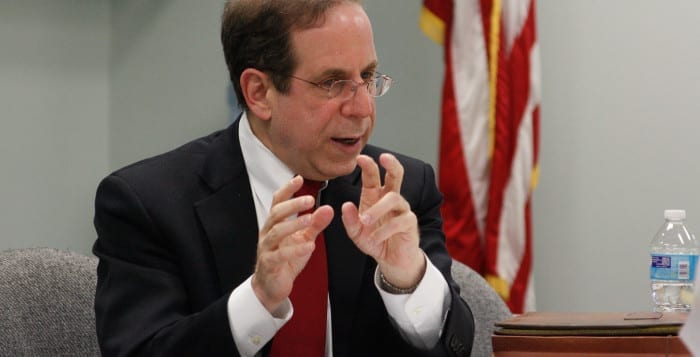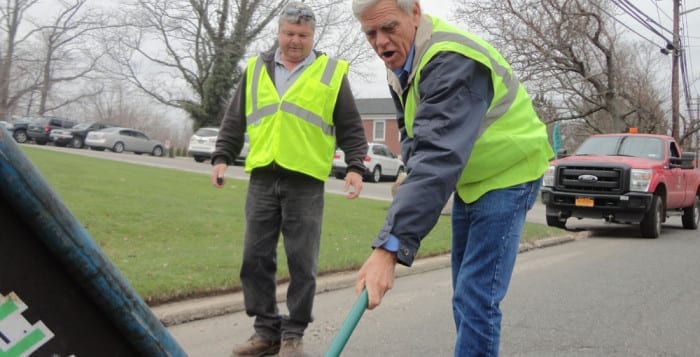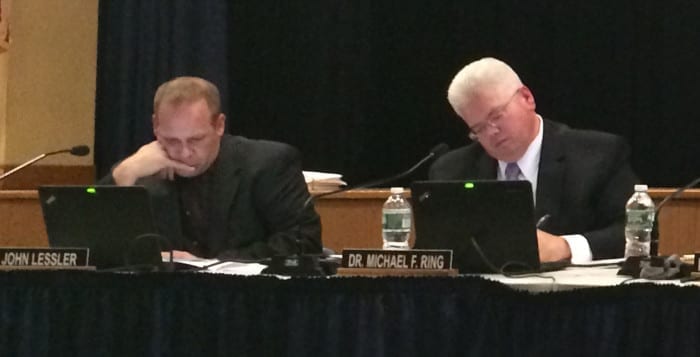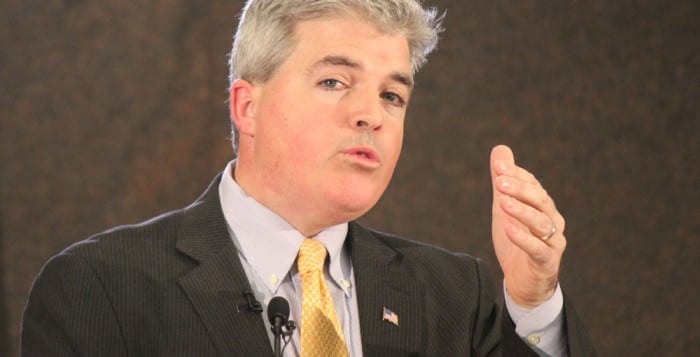Just a few hours before the New York State Legislature approved the state’s 2015-16 budget, which includes a number of Gov. Andrew Cuomo’s education reform initiatives, school districts across the North Shore finally got to know how much aid they’ll receive next year.
The state aid runs showed districts getting more than they expected, since many budgeted around a 1.7 percent increase. Earlier this year, Cuomo (D) announced state aid would only increase by $377 million — a 1.7 percent increase from this year — if his state education reforms didn’t pass the Legislature.
And while not all of the initiatives passed, a few did, so the aid increased by about $1.4 billion statewide.
“This is a plan that keeps spending under 2 percent, reforms New York’s education bureaucracy, implements the nation’s strongest and most comprehensive disclosure laws for public officials and makes the largest investment in the upstate economy in a generation,” Cuomo said in a statement.
But not all were convinced the education initiatives would reform public schools.
The Education Transformation Act of 2015 amends the teacher evaluation system, changes the time to gain tenure from three to four years and creates two designations for failing schools. The hot-button item, though, was the teacher evaluation system.
Under the act, the State Education Department will develop a new teacher evaluation system by June 30, which school districts will then have to locally negotiate and enact by Nov. 15 in order to receive their allotted aid. The system also includes a component based on students’ performance on the state’s common core-aligned tests. The evaluation system was last changed in 2013.
In a phone interview on Wednesday morning, Middle Country Central School District Superintendent Roberta Gerold, who is also president of the Suffolk County School Superintendents Association, said she believed the change to the system was misguided, and wished elected officials would have learned that “rushing into a system that doesn’t have details attached” — as was the case in 2013 — doesn’t work.
Some Assembly members said they shared Gerold’s concerns.
Assemblyman Steve Englebright (D-Setauket) voted against the Education, Labor and Family Assistance State budget bill, which Cuomo issued on Tuesday with a message of necessity. When asked about the reforms, Englebright immediately interjected, “they are not reforms,” he said.
He said he voted against the measure because it was unclear as to how it would impact students.
“[It] doesn’t mean we can’t make improvements, but those improvements need to make sense,” he said.
Englebright strayed from his fellow party members by voting against the bill, which he said was a difficult decision.
“The people who sent me [to Albany] are the ones who I finally had to vote in accordance with,” he said.
Assemblyman Andy Raia (R-East Northport) said in a press release the education measure “takes away local control and is downright insulting to principals, administrators and teachers.”
While most North Shore Assembly officials voted down the education component, Mike Fitzpatrick (R- St. James) voted yes. In a phone interview Wednesday, Fitzpatrick said he stood by his decision.
He said he believed the reforms would bring more accountability to the system, which needed to be reformed. Fitzpatrick also said the amendments take away some of the New York State United Teachers union’s power. The union referred to the changes as a disgrace and the evaluation system as a sham.
“Good teachers, and they know who they are, they don’t have anything to worry about,” Fitzpatrick said.
Rohma Abbas contributed reporting.














